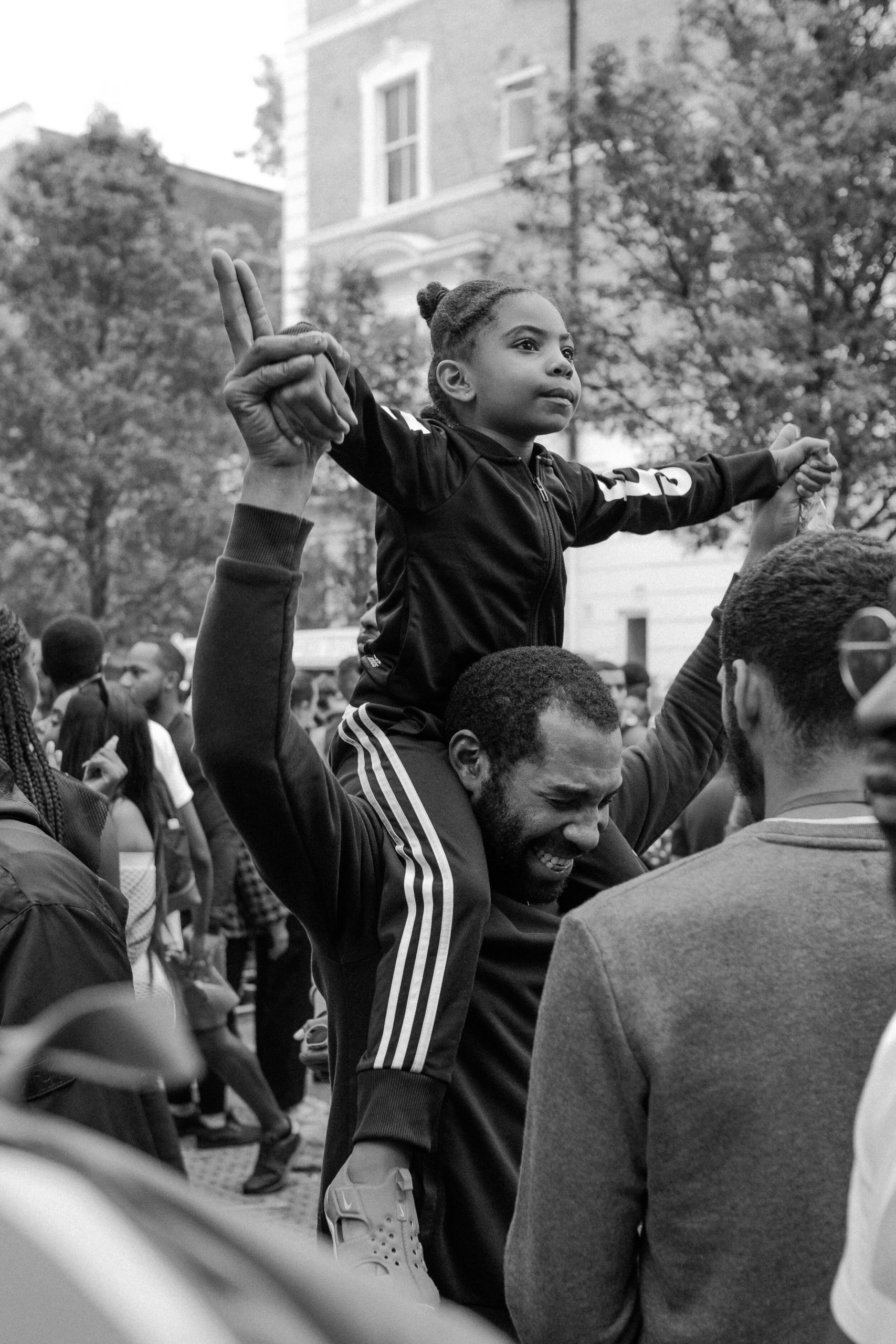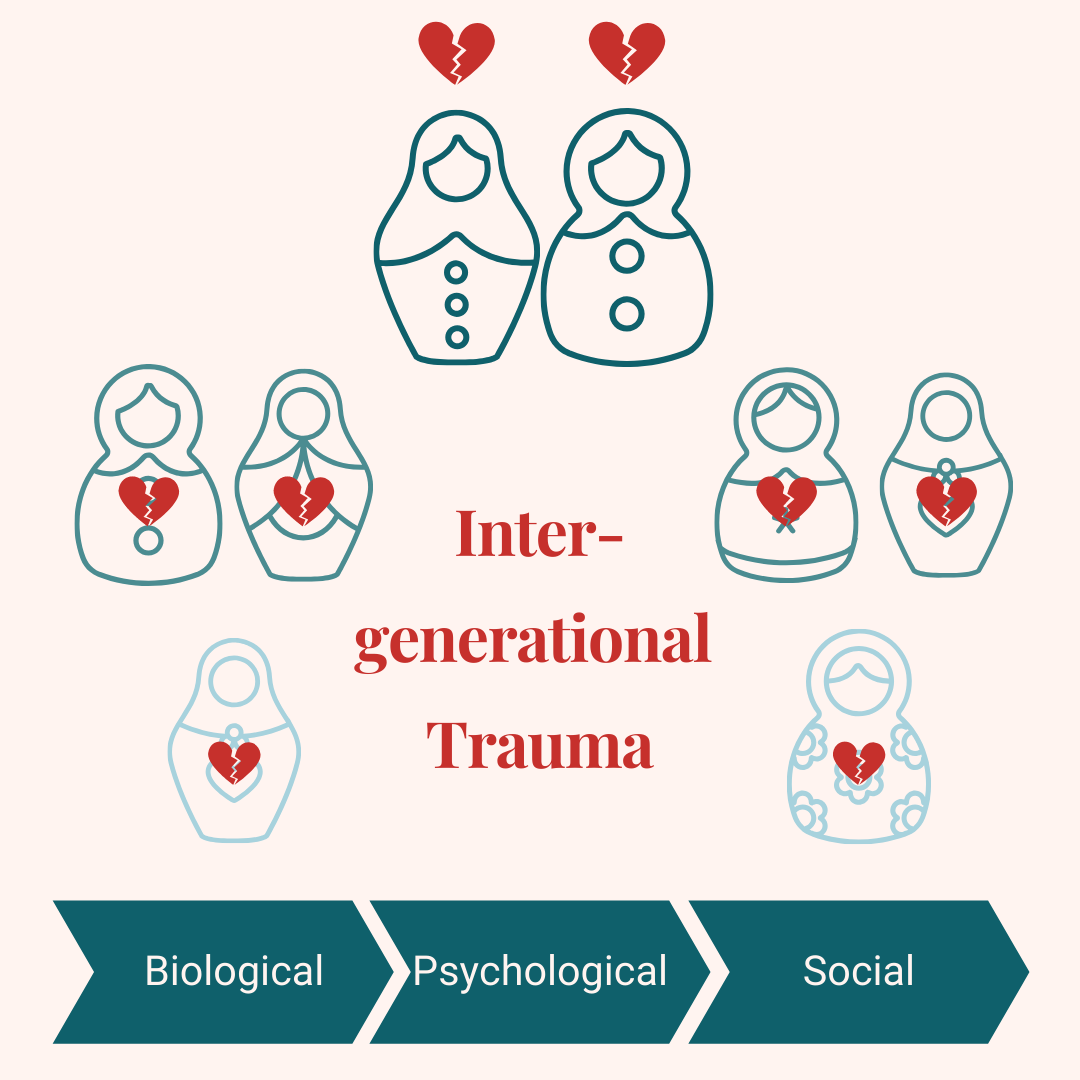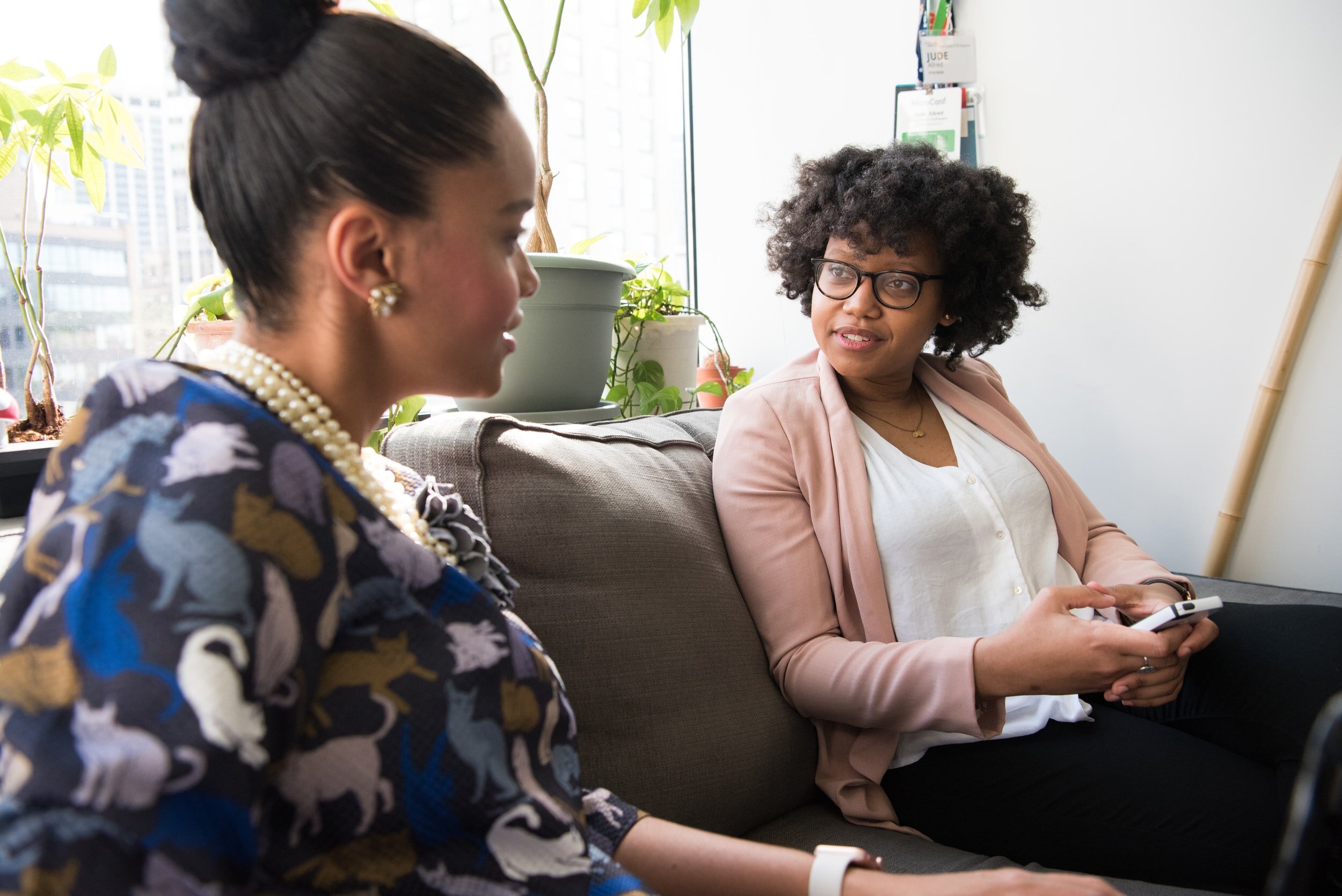We hear your pain. We are listening to cries that are centuries old, and we stand with you.
We know that the Black community faces different needs. We are dedicated to continue to look inward, to listen, to learn, and to serve our community with compassion. We will actively show up, and fight the systemic racism and institutional violence that has been placed on Black bodies.
“Racism changes the shape of a person’s soul”
What is intergenerational trauma?
Intergenerational (sometimes called racial or transgenerational) trauma is the idea that trauma can be passed down from generation to generation. This transfer can be experienced psychologically, socially, spiritually, and although the research is limited, there is some evidence that trauma can be passed biologically too.
But what about this common criticism: “That happened so long ago, get over it.”
For someone to fit criteria for PTSD (or Post Traumatic Stress Disorder), they don’t actually have to directly experience that trauma. Trauma can be passed down through things like story telling, observing the lives and the mental and physical health of the people affected by the aftermath, and even through videos or photos.
People whose roots originate in trauma, whether that be a history of war, famine, genocide, or slavery, will often experience intergenerational trauma. This trauma is not new. It has lived in bodies from generation to generation, and right now, Black people are experiencing a collective re-traumatization, so we ask ourselves, what can we do?
WHAT CAN WHITE AND NON-BLACK
PEOPLE OF COLOR DO?
-
LISTEN. Too often, white and N-BPOC are the most vocal in discussions about Black experiences and what’s best for them. Be mindful of how you take up space in those conversations and don’t center yourself. By listening to Black Americans and their experiences, stories, and pain, we will gain an understanding of an experience that is not our own. Then we can know when it’s the right time to speak out, and when it’s the right time to just listen, learn, and follow.
-
EDUCATE. White and N-BPOC are at an advantage when educating other white and N-BPOC about topics of race and inequality. Do your research, but do not ask Black or marginalized people to teach you. They are tired of explaining their hurt and we already have the resources to educate ourselves and our community. Click here for anti-racism resources.
-
FIGHT FOR CHANGE. While it’s important to address intergenerational trauma clinically, we have to deal with it on a larger scale too. This requires social justice and change in the system that was set up to hurt Black people. Sign petitions, protest, donate to bail funds or other organizations advocating for systemic change, and vote compassionate people into office.
PRACTICAL WAYS TO MANAGE racial trauma
-
DON’T APOLOGIZE. Don’t apologize for the way these horrific times are impacting you. However you’re processing, you’re doing it right.
-
ACKNOWLEDGE YOUR EMOTIONS. Acknowledge your hurt, your trauma, your frustration, and your anger. Acknowledge the pain that is living in you and give yourself grace. These emotions are heavy and go back generations, and you’re completely valid to feel them.
-
LIMIT EXPOSURE OF VIOLENCE TOWARD BLACK PEOPLE. Watching violent racism happen through video or photos can be triggering and re-traumatizing. Instead, read about the incident or ask a friend to tell you the details.
-
BREATHE. You are tired. We see you and we see the collective re-triggering and re-traumatization that you’re feeling. Remember that you are not alone. Breathe. Ground yourself. Speak to like-minded people who can affirm your emotions. Check in on yourself and ask for help if you need to. For a list of particularly Black & LGBTQ+ practitioners with free/cheap/sliding scale online therapy, see the list below. Or reach out to us here.
ACCESSIBLE THERAPY RESOURCES
(LIST COMPILED BY _ZEROCLOUT ON INSTAGRAM)
-
Particularly Black & LGBTQ+ practitioners.
-
Free/cheap/sliding scale online therapy. With or without insurance.
Central City Integrated Mental Health Services – No one turned away for lack of funds
Affirmations – Sliding-scale LGBTQ+ affirmative counseling
Radical Well-Being Center – Decolonized, sex worker friendly, LGBTQ+ affirmative counseling with sliding scale options
Therapy for Black Girls – Find Black women therapists
Better Help – Affordable online therapy with flexible scheduling
Open Path Collective – Counseling for $30-$60 per session
Psychology Today Search Tool – Allows you to filter therapists by race, gender, sexuality, insurance, experience, location, specialty, and more
WANT TO READ MORE?
CATCH UP ON OUR LATEST BLOGS BELOW.
Previous Blog Post
Next Blog Post











Nov 17, 2021
Nov 17, 2021
Stress is a state of mental or emotional strain or tension resulting from adverse or very demanding circumstances. It is the body’s physical response to a real or perceived threat, demand, or danger.
Everyone experiences stress at different levels. Even when the same stressors are present, our experiences can be different. Certain groups experience higher levels of stress, for example, communities of color, LGBTQIA+, women, and parents.
Stress isn’t always harmful. For example, think about the motivation you feel to study for your next exam, or the urge to make a to-do list on a Sunday. These are positive ways that stress can help you focus and complete tasks. But when stress is frequent and intense, it can affect your overall health, resulting in a reduced quality of life.
This is why we want to help you get to the root cause of your stress, understand the ays it manifests for you, and learn preventative tools for coping with stress. Because you deserve a healthy, happy life.
Nov 17, 2021